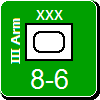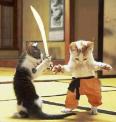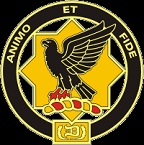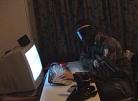GoodGuy
Posts: 1506
Joined: 5/17/2006
From: Cologne, Germany
Status: offline

|
quote:
ORIGINAL: Poopyhead
The average age of the inexperienced Marines was 17, but their leaders weren’t 17 or inexperienced.
If 17 really was the average age, then this would mean that there were soldiers say 15 and 16 yrs old, as well as 18-19 or even 20 yrs old soldiers. If I am not mistaken, the minimum age was 17 (parents' consent needed), and 18 (without parental consent). Now add to this boot camp (3 months?) and additional training (up to several weeks or even several months), plus relocation to and build up of forces in the PTO (several weeks, if not 2 or 3 months). At the time the "inexperienced" Marine hit the landing beach, he was still inexperienced, but clearly older than 17.
quote:
Napoleon said, “An army of lions led by a rabbit will always be overcome by an army of rabbits led by a lion.” Sgt Basilone wasn’t a leader who was a rabbit.
Having a "lion" as leader can't substitute the need for training (weapons training, coordination, combined arms training, etc.) and surely can't substitute combat experience, though. If I am not mistaken, Basilone did not have combat experience before he got there, but he had received plenty of training.
The training standard in the USMC was probably higher (and rougher for the recruits), but I could imagine that there were some units which did not train continuously after boot camp. Not being used to combat conditions, I could also imagine that one or another unit had to adapt to such conditions first, in their first fight, no matter whether in practice it then took some 30 mins only, or hours/days.
quote:
He had served in the Marines for three years in the thirties in Central America. Leaders like him were in the 1st Marine Division. They would have kept their Marines in the right uniform, with their weapons ready and not lying around on the beachhead.
I think what you describe (what you think how things really had been) is rather a myth. The US units that landed at Omaha Beach had received a lot of training, boot camp in the US, additional training after boot camp, and even more manouevres and training in Britain. That was a luxury the Japanese or the Germans could rarely afford after 1942. German recruits were lucky when they received 6 weeks of training (boot camp) around mid 1944. In late 1944, in many instances German recruits got their uniforms, their helmets, their gun, and they were declared combat ready within 3-7 days. Prior to the Ardennes offensive, there were units that had been almost annihilated in France, say like the 12. SS-Panzer-Division "Hitlerjugend", where then surviving NCOs were used to reestablish the division by making use of the remaining skeleton unit, which didn't even have the structure of a typical German Shadow-division anymore. The rebuilding occured from November to December (where the rebuilt Division was then scheduled to participate in the Ardennes offensive on 16th of December), granting the recruits roughly 4 weeks of training. The unit's performance was poor.
That said, I'm convinced that discipline comes with routine and even more with a lot of training, or - like for some German units defending or counterattacking on German soil - with fighting to the last bullet in fear of loosing their homeland.
So, when these trained US units hit Omaha, they suddenly faced some (unexpected) heavy opposition, and what happened? They were actually still lying on the beach, as the fierce defensive fire from the Germans made major moves almost impossible. It took some senior officers to kick the soldiers' butts to come up with solutions or to lift their spirits, simply because lying there for another 2 or 3 hours would have resulted in their destruction. It was most likely more about survival instinct than about a proper level of discipline and routine, especially since quite some mishaps occured in that sector (tanks dropped at the wrong locations, some tanks sunk, rocket barrage totally ineffective as the rockets fell short of the beach, obstacles were not cleared in time, etc. etc.), which all had the potential to undermine morale and discipline.
The Japanese officers observing the US landing on Iwo Jima actually reported that the US units were scattered all over the beach and suffered substantial losses, due to the Jap artillery bombardment and the MG-nests at the beach-line. Initial progress was slow, or even non-existent for a while, and that was not just because of the soft and warm ground (which made landing of tanks and heavy equipment and even crawling even more difficult), but because the Japs actually put up quite some resistance. If I'm not mistaken, the 2 USMC Divisions (4th and 5th) which were tasked with taking the beaches had quite some combat experience, but their casualty rate over the course of their commitment was still relatively high (2,400 troops IIRC).
So this example clearly demonstrates that even experienced units have to adapt to combat environments and conditions, and they have to overcome the moment of shock (eg. caused by unexpected heavy enemy fire) as well, before they can access their routine "program" again, which - in turn - enhances discipline.
In comparison, the US 88th Infantry Division received additional training repeatedly solely because its commanding General insisted on keeping this particular unit in good shape, even when it was deployed to a quiet sector in North Africa, where it could use a French fort as training base. When sent to Italy, he made them train again for an extended period before being committed for the first time, quite some units in the PTO could not do that. Then, after the rather calm winter 43/44 the unit was able to muster a successful offensive against 2 German Inf Divisions (which were fatigued and could not afford the luxury of leaving the front line to refresh and train), mainly because it had the possibility to train and stay in good shape during that rather calm period.
The 88th penetrated the Gustav line and later on the Gothic line and performed well if you consider it had no combat experience. They even pursued the enemy multiple times, as their physical fitness had reached a high level, due to the extensive training.
Other US units, which had not received training after boot camp did not perform on that level.
The 88th finally crumbled during its last major offensive in Italy, though, they experienced more than 6,000 casualties, purely because the US did not employ a proper unit rotation scheme, it remained on the front line for too long. At that point, the 88th received more casualties than it inflicted on the enemy. It still says a lot about US tactics and US leadership, if you consider that in 1944 the enemy was often more fatigued, understrength, under-equipped and even forced to field depleted or garrison units and even Luftwaffe units, in quite some sectors.
The same (the lack of a proper unit-rotation scheme) was experienced by some USMC units in the PTO, because their COs were a bit too eager and insisted that their particular units could finish the job, and that the assistance of US Army IDs was not needed (Iwo Jima?), where then the Infantry units still had to take over later on, after the USMC units appeared to be fatigued and loosing effectiveness.
quote:
Discipline isn’t something that you leave on the parade field.
Well, but discipline might get dropped for a while, especially if a unit doesn't have combat experience, and if a given group of soldiers is busy with processing some unforgettable impressions, like seeing their mates being shred to pieces, like flying arms and legs, and if they have to find some cover themselfs. I wouldn't deny that some soldiers were and are able to cope with such new environments right away, but the majority will have a moment (if not minutes or more) of shock. In contrast, it took totally untrained units (like the 106th ID in the Ardennes - 1944) hours to process the shock (partially a whole day) in addition to their CO not reacting properly, it took them way too much time to recover, so they got surrounded and ended up as POWs. The 106th wasn't depleted, it wasn't fatigued, it wasn't like it had starved for days, it just had not received additional training after boot camp and it had no combat experience, it could not even rely on training experiences. Due to the lack of divisions in the ETO, it was common procedure to deploy such units in supposedly calm sectors, like *cough* the Ardennes, in order to give such units time to assimilate and adapt to the environment.
The neighboring unit (I think it was the 99th US ID) had received some additional training in Britain at least and it performed ok, as it managed to hold parts of the Northern shoulder.
< Message edited by GoodGuy -- 3/23/2010 12:32:55 AM >
_____________________________
"Aw Nuts"
General Anthony McAuliffe
December 22nd, 1944
Bastogne
---
"I've always felt that the AA (Alied Assault engine) had the potential to be [....] big."
Tim Stone
8th of August, 2006
|
 Printable Version
Printable Version











 I've no problem with the MG no.2 carrying his tripod in a bear hug, (it was only a couple of shots anyway that they showed it) those things can get heavy after a while so he was probably just resting his shoulders.
I've no problem with the MG no.2 carrying his tripod in a bear hug, (it was only a couple of shots anyway that they showed it) those things can get heavy after a while so he was probably just resting his shoulders.



 . Semper Fi..
. Semper Fi..




 New Messages
New Messages No New Messages
No New Messages Hot Topic w/ New Messages
Hot Topic w/ New Messages Hot Topic w/o New Messages
Hot Topic w/o New Messages Locked w/ New Messages
Locked w/ New Messages Locked w/o New Messages
Locked w/o New Messages Post New Thread
Post New Thread